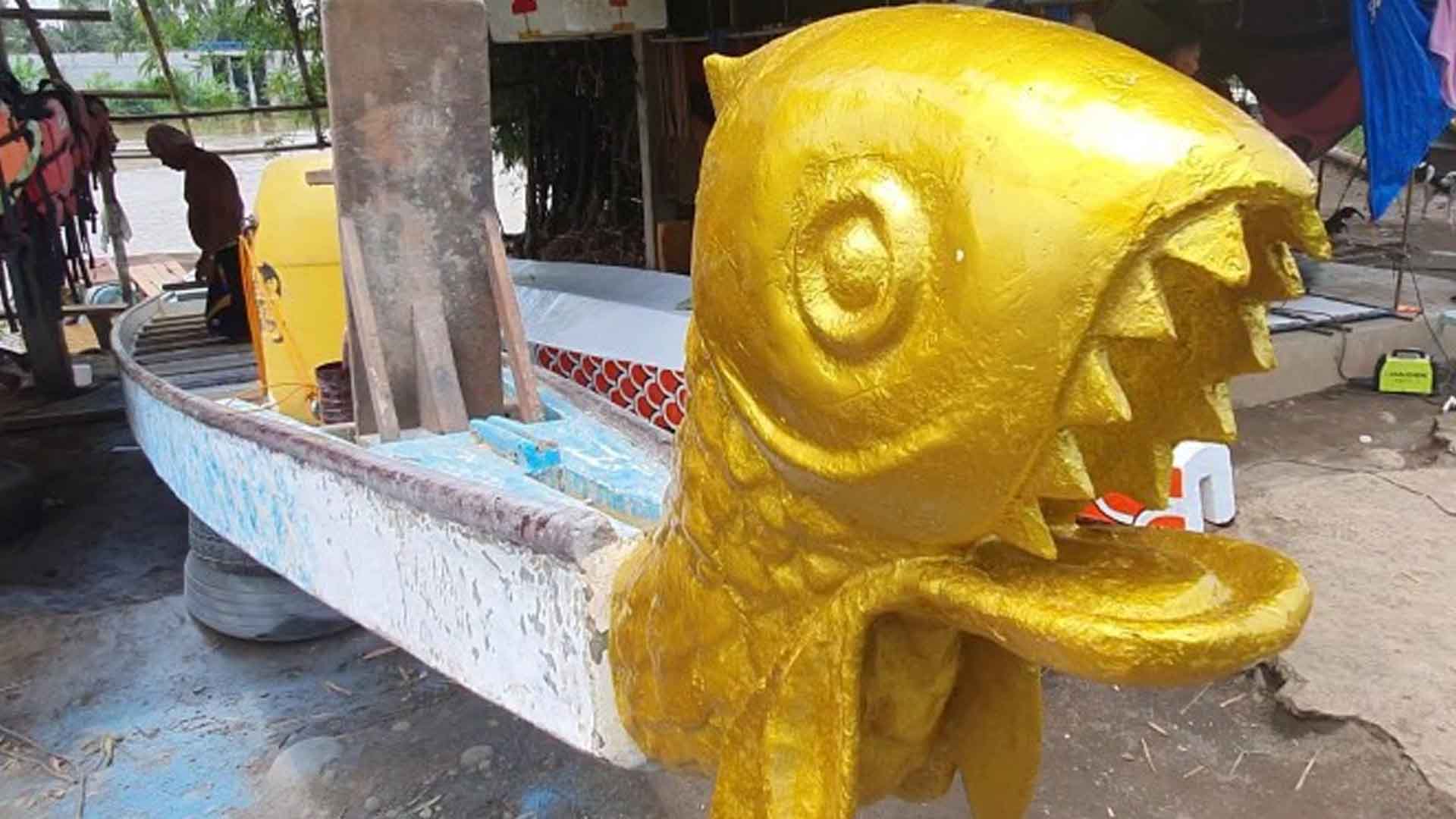It was already high noon but Isidro Sabanal and his group of handymen, focused and with gusto, continued refurbishing two of the four boats at Cagayan River’s docking site at the side of Barangay Carmen here.
Isidro, along with his partner, Pretty, has been a caretaker of the dragon boats that were used for racing in major events in the city such as the Chinese New Year and the Higalaay Festival.
In other occasions, the boats are rented for some racing events outside the city.
But this year, Isidro will not be fitting the traditional dragon heads and tails. Instead, he will be attaching the golden heads and tails of the “Kugtong”—the city’s mythical water creature.
Although “Kugtong” is a Visayan term for large grouper fish, its name has a mythical significance in the legend of the giant “Oro” fish that bears this city’s name.
Various verbal accounts of this legendary gigantic fish have been retold from one generation to another, but the most common was that it was once residing in the Cagayan de Oro River beneath the St. Augustine Cathedral, either sleeping or guarding treasures.
Legend has it that once it was awakened, the people in the city could feel tremors or earthquakes.
During the Higalaay Festival in August this year, the legend of the “Kugtong” is reawakened as the annual dragon boat racing is renamed a “Kugtong Boat Racing.”
Reimagine
John Asuncion, founder of Dragon Boat Kagayan and the organizer of the race, said in an interview Thursday that this is one way to “reimagine” dragon boat racing.
“We will use the Kugtong heads during fiesta races so that there will be local relevance,” he said.
Asuncion solicited the help of renowned local artist, Nicolas Aca, who is also the chairperson of the City’s Historical and Cultural Commission.
Aca said his design is based on his interpretation of the legend that he grew up with.
Promote local folklore
In constructing the creature’s heads and tails, he said styrofoam-based materials and some mixture of fiberglass were used. The lightweight output was then painted with a golden color that can withstand the river’s water currents.
“It’s one way to promote our local folklore in the city. Sadly, the newer generations were preoccupied with social media that they tend to forget the myths and legends of our city,” Aca said.
Even in the simple design of the “Kugtong,” he hopes to rekindle the younger generations of their Kagay-anon identity.
Cagayan de Oro has grown to become one of the highly-urbanized cities with a diverse population coming from different regions.
Aca also approved the idea that Kugtong represents the symbol of the modern city of diverse people and culture, and golden opportunities. (PNA)







